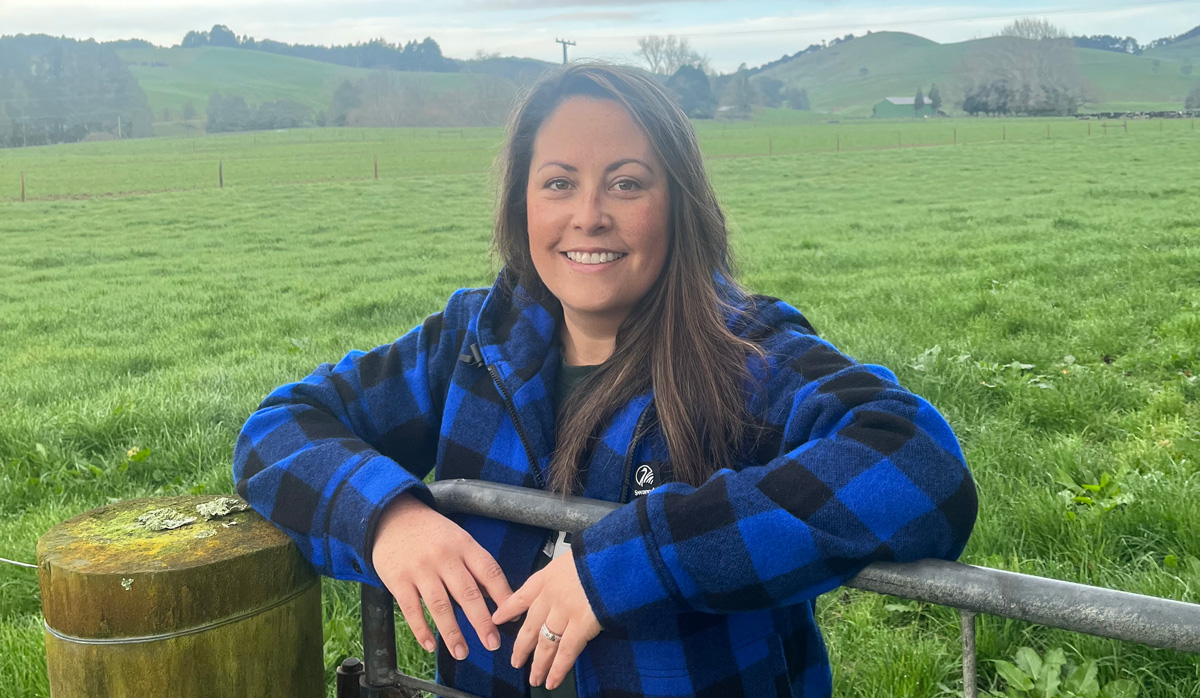DairyNZ Levy Vote Underway as Chair Highlights Seven-Fold Return
Voting has started for the renewal of DairyNZ's milksolids levy.
Siobhan O’Malley is a dairy farmer, innovator, businesswoman and community volunteer, an example of the thousands of Kiwi dairy farming women throughout New Zealand who multi-task every day to contribute positively to their communities.
For O’Malley, there’s never a dull day – she’s also a high school teacher, president of her children’s gymnastics club, small business owner and her family enjoy being involved in sustainability initiatives.
DairyNZ general manager Alyce Butler says International Women’s Day is a great opportunity to celebrate the amazing contribution of rural women across all aspects of Kiwi life.
“About one third of dairy farmers are women and they contribute hugely every day to our sector, communities, local economies, schools, sports and sustainability initiatives,” Butler says.
“The dairy sector is evolving and becoming a more inclusive and diverse workforce with varying needs and wants,” she says. “We’re developing new ways of working – different milking schedules, varied rosters and new technology – all of which support efficient farm systems and inclusive workplaces.”
O’Malley and fellow dairy farmer Wayne Langford co-founded Meat the Need charity, which helps feed Kiwis in need so they don’t go hungry. Farmers throughout the country donate meat and milk, which the charity provides to foodbanks and other community groups dealing with poverty in NZ.
“Meat the Need is hugely successful,” says O’Malley. “We’ve achieved more in three years than we thought we would in 10 years because farmers really got behind it.”
“I get involved in my community in the things that I believe are really important and that I’m passionate about,” she says. “By working together in our communities, we achieve so much more.”
O’Malley didn’t always live on a dairy farm. She grew up in Christchurch and graduated with a Master’s degree in classical studies.
She met husband Christopher when he was a tour guide in the Abel Tasman and later in Dublin, Ireland. They went dairy farming together after Christopher worked for his brother, who was sharemilking, and fell in love with it.
The couple own their own farm in Hokitika and enjoy teaching their children about farming and the environment. They plant native trees on their property, which give native birds places to rest and feed.
“With farming, I love being the master of my own destiny and the whole family is involved,” she says. “Our children Finnian (12), Aisling (10) and Ruairi (7), know more about running a business than I did at 18.”
On the business side, O’Malley and two other farmer friends she met at the Kellogg Rural Leadership course have created luxury knitwear company, Hemprino – an e-commerce start-up.
Hemprino is made from hemp fibre and merion wool.
“The hemp fibre strengthens the merino and the knitwear is soft. It’s biodegradable which is important to us – we believe everyone should be reducing their environmental footprint where they can,” she says.
South Auckland dairy farmer Amber Carpenter is also making a difference to her local community and New Zealand.
After a career in fashion, she swapped high heels for gumboots to focus on the family farm with husband Fraser. She says farming is a great career allowing her to be at home with her children Oliver (6) and Noah (3).
 |
|---|
|
Dairy Environment Leaders chair Amber Carpenter. |
Carpenter chairs the Dairy Environment Leaders – a network of 400 environmentally focused farmers created by farmers, DairyNZ and the NZ Farm Environment Trust in 2007. The network aims to empower leadership and create opportunities to support and share on-farm actions to reduce environmental footprint.
She says the opportunities and people in the dairy sector are farming.
“Farmers always have time to help others,” she says.
“They share ideas and give advice, and you know people are there for you should you need them. It’s great to be part of such a positive and engaging sector.”
Dairy Women's Network (DWN) has announced that Taranaki dairy farmer Nicola Bryant will join its Trust Board as an Associate Trustee.
Rural Women New Zealand (RWNZ) says it welcomes the release of a new report into pay equity.
Red meat exports to key quota markets enjoyed $1.4 billion in tariff savings in the 2024-25 financial year.
Remediation NZ (RNZ) has been fined more than $71,000 for discharging offensive odours described by neighbours as smelling like ‘faecal and pig effluent’ from its compositing site near Uruti in North Taranaki.
Two kiwifruit orchards in the Bay of Plenty and one in Northland are this year's finalists for the Ahuwhenua Trophy competition.
The Government's chief science advisor, Dr John Roche says the key objective for the science sector in the coming year is bedding down the reforms which sees the merger of the previous entities.

OPINION: A mate of yours truly reckons rural Manawatu families are the latest to suffer under what he calls the…
OPINION: If old Winston Peters thinks building trade relations with new nations, such as India, isn't a necessary investment in…